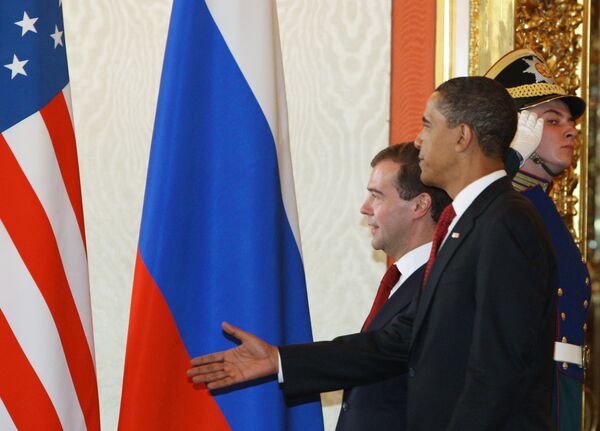Georgy Bovt, editor-in-chief of the magazine Russky Mir.ru
This seems like a strange question, as the end of the Cold War would presumably benefit all, and above all, nations. It is a good and “peaceful” answer but, unfortunately, an impractical one, because the end of the Cold War would leave too many people out of the game.
The current Russian political (and largely economic) elite have been infected with the anti-Americanism virus. It has become so virulent that Russia’s political decisions are often made “to spite Americans.” Domestic propaganda is also largely based on anti-Americanism.
This is not the siege mentality, which was widespread during the most tense periods of the Cold War, but the current approach contains many elements of that mentality. Playing on feelings of injured national pride, which grew in Russian society after the collapse of the Soviet Union, it is always spearheaded against America.
Therefore, I do not believe in the success of resetting Russia-U.S. relations. I cannot judge the sincerity and pragmatism of President Barack Obama’s political intentions, but Russia’s actions, which are influenced by the current mood within the elite, are purely tactical.
Many people responsible for political decisions in Russia do not believe in the possibility of honest and practical cooperation with America even in the traditional areas of collaboration, mentioned when they need to project a positive tone, like the fight against terrorism, nuclear non-proliferation, poverty, or global warming. There is always rivalry in these spheres, and it always dominates cooperation.
As for other areas of potential cooperation, prejudice and mistrust do not even allow for the launching of a constructive dialog.
In the domestic economy, the bulk of the Russian elite are not ready to open the country to foreign – especially American – investment and business or the modern rules of conducting business. There is a very long list of “strategic enterprises and sectors” where foreigners are denied or given only limited access.
The ruling Russian bureaucracy, who smartly combines state rule with corrupt private business, is afraid of opening up the country and its economy, for the simple reason that broader competition would spotlight the political and economic incompetence of a considerable part of the ruling elite.
At the same time, infighting for kickbacks from corruption prevents the development of predictable and understandable rules. Such rules could be complicated and quite unlike the rules accepted in the West, but they could at least be understandable and predictable. Russia has no such rules, and everything here depends on the current political climate, the official who holds this or that post, his/her plans for a business, and God only knows what else.
It is very difficult to develop a long-term strategy in this situation, and this disability is the main factor discouraging investment in Russia.
Consequently, this policy undermines the material foundation for long-term, large-scale economic cooperation between Russia and the West, and it does not matter if oil prices are high or low. The only difference between high and low oil prices is Russia’s foreign policy arrogance – the higher the price, the more convinced it becomes of its own self-sufficiency.



